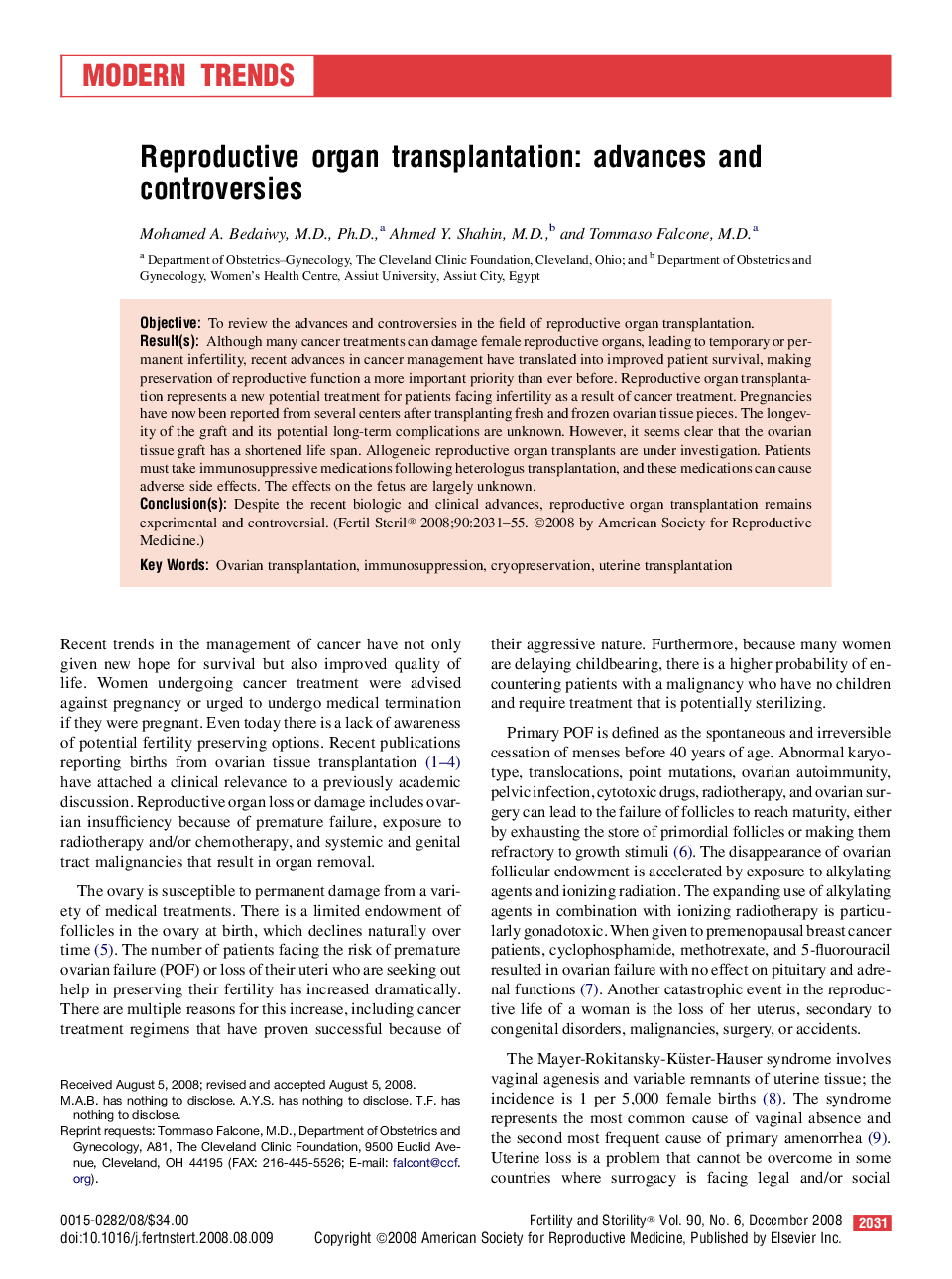| Article ID | Journal | Published Year | Pages | File Type |
|---|---|---|---|---|
| 3937161 | Fertility and Sterility | 2008 | 25 Pages |
ObjectiveTo review the advances and controversies in the field of reproductive organ transplantation.Result(s)Although many cancer treatments can damage female reproductive organs, leading to temporary or permanent infertility, recent advances in cancer management have translated into improved patient survival, making preservation of reproductive function a more important priority than ever before. Reproductive organ transplantation represents a new potential treatment for patients facing infertility as a result of cancer treatment. Pregnancies have now been reported from several centers after transplanting fresh and frozen ovarian tissue pieces. The longevity of the graft and its potential long-term complications are unknown. However, it seems clear that the ovarian tissue graft has a shortened life span. Allogeneic reproductive organ transplants are under investigation. Patients must take immunosuppressive medications following heterologus transplantation, and these medications can cause adverse side effects. The effects on the fetus are largely unknown.Conclusion(s)Despite the recent biologic and clinical advances, reproductive organ transplantation remains experimental and controversial.
